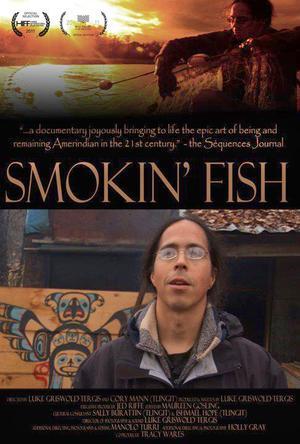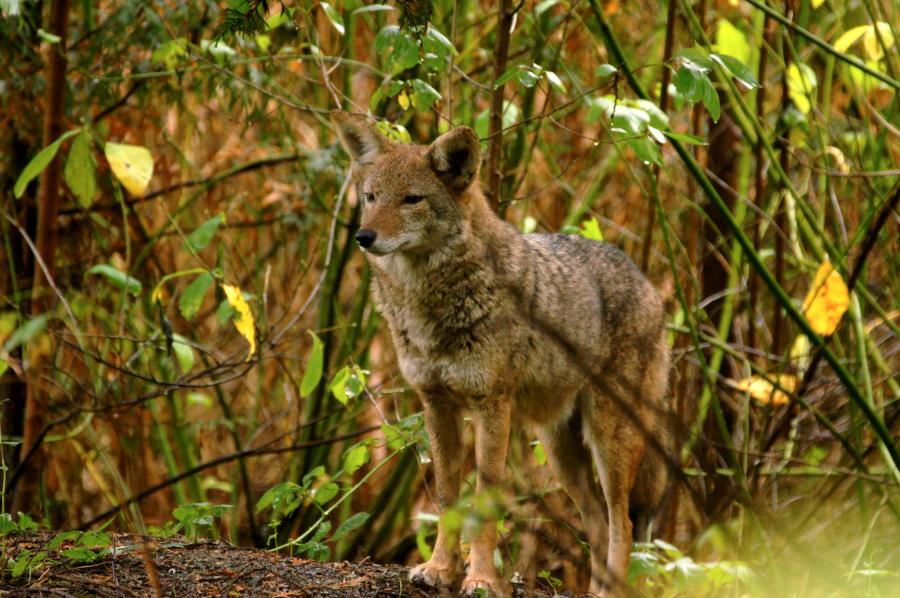
By Terrance Hall
Smokin’ Fish. 2011, 81 minutes. Directed by Luke Griswold-Tergis & Cory Mann (Native American Public Telecommunications, Inc).
Smokin’ Fish is a film about the complexities of modern indigeneity, the ills of colonialism and capitalism, and what it means to smoke salmon. Through his welcoming narration, Cory Mann, a Juneau businessman, recounts the story of his return to his family’s hometown of Klukwan for a summer of smoking fish and reconnecting with his past, all the while maintaining his sales business and keeping the IRS off his back.
Born in Juneau, Alaska to a Tlingit mother and a white father, it wasn’t long before Cory and his mother moved to San Diego, where he spent much of his early childhood. It was here that Cory’s identity confusion began - “For a long time I thought I was Mexican” he remarks. The confusion was compounded when his Aunt Cookie, one of the seven women who raised Cory, picked him up in San Diego and the two hitchhiked their way back to Alaska. Upon arriving, Cory’s great-grandmother wanted to know “who’s this Indian boy, who’s my grandson, who doesn’t know what snow is?”
To Cory, only the people were alive in San Diego – but once he returned to Alaska, the whole world was alive. A cultural wake-up call, he was at first afraid of it all – “Everything felt like it was going to kill me… if I upset anything here, the spirits were going to take me away, and the bears would eat me.” A bit of a cultural wake-up call, Cory regularly relied upon the teachings and mentorship of his aunts, grandma, and great-grandma. After having spent some time with his family, Cory is no longer afraid – “You talk to a bear just like you’re talking to a family member.”
Cory’s personal narrative offers viewers a glimpse into the complicated nature of maintaining both Tlingit traditions and modern Alaskan practices. His time spent in Klukwan allows him to participate in many traditional Tlingit practices: aside from catching and smoking fish, Cory also picks wild blueberries, travels to Yukon to trade for moose meat, and spends much of his time sailing or canoeing the Chilkat River.
Intricately woven into Cory’s personal narrative are the stories of his family and the Tlingit people. Covering everything from the Tlingit creation story, to modern conflicts involving the Tlingit and the DNR, Cory's summer is a model of understanding deeper issues of colonialism and capitalism in terms of Tlingit history and traditions.
Smoking fish, to Cory, is more than just producing tasty food for the winter – it is also a way of exploring what it means to be Cory Mann, and to be Tlingit. Smokin’ Fish doesn’t leave the viewer with easy answers, and no definitive conclusions are laid out. Rather – the film tells a story that urges one to look deeper into the complicated processes and histories that shape modern identity.
To learn more visit: http://smokinfishmovie.com/



